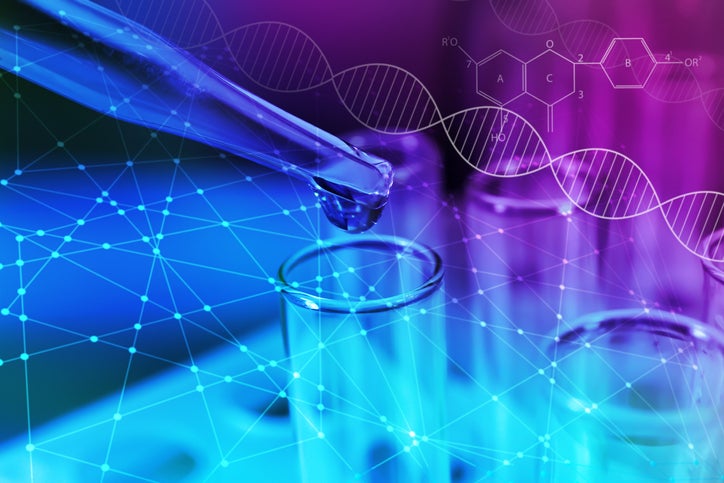-
Things That Can Harm Male Fertility
For nearly 15 percent of American couples, infertility is a real struggle. Many factors have an impact on fertility, and both partners’ health plays a key role. Male infertility is about half the reason that couples fail to conceive, but do you know what factors into male fertility? Knowing the things that can harm male fertility can help you safeguard yours.

Low sperm production, abnormal sperm function, and blockages that prevent sperm delivery are the primary causes of male infertility. These issues may be the result of an underlying health problem, sometimes one over which you have no control. However, lifestyle factors can also have a major impact.
A recent study linked manual labor with low sperm counts. In a study of 456 men around the age of 32, researchers discovered that 13 percent of the men with physically demanding jobs had low sperm count, as opposed to only 6 percent of men without strenuous work. Other things that had a negative impact on fertility included:
- High blood pressure
- Smoking or using tobacco
- Using alcohol and marijuana excessively
- Taking certain illicit drugs including anabolic steroids and cocaine.
- Being overweight
- Suffering emotional stress
- Overheated testicles from frequent use of saunas or hot tubs, prolonged sitting, wearing tight clothing, or working on a laptop for extended periods
- Exposure to toxins like benzenes, pesticides, herbicides, etc. which can lower sperm count
- Current or past STIs including chlamydia and gonorrhea
- Certain prolonged activities like biking or horseback riding, especially on a hard seat or poorly adjusted bicycle
Other medical causes include hormonal imbalances, sperm duct defects, undescended testicles, tumors, and varicocele. A varicocele is a swelling of the veins that drain the testicles, and this swelling can prevent normal cooling. This is the most common cause of male infertility, but it’s also, fortunately, reversible. Varicoceles are often asymptomatic at first, but can enlarge, becoming noticeable or causing pain.
Unless you’re trying to conceive and having difficulty, you may not be aware that you have fertility issues. However, in some cases, there are signs and symptoms. If you experience problems with sexual function, pain, swelling or a lump in the testicle area, frequent respiratory infections, or decreased facial or body hair, schedule a visit with your doctor to check on your fertility.
If you’re struggling with infertility or considering a vasectomy reversal, the Center for Vasectomy Reversal is here to help. Under the direction of Dr. Joshua Green, our team provides state-of-the-art treatment for men who need a reversal of their vasectomy or have other concerns about their fertility. We accept major credit cards as well as cash and checks, and offer a payment plan for those who are unable to pay the entire fee at the time of surgery. Whether you’re ready to schedule a procedure or just want to learn more, you can contact us through our website, or call 941-894-6428 to arrange a free consultation.
-
New Research about Infertility is Promising
One in eight couples has trouble conceiving. Do you know how many of the cases are caused by unexplained male infertility? Nearly a quarter. For years, scientists have known that infertility can be linked to sperm that fail to throw out histones from DNA during development, but the reasons for this failure and how it happens is unclear. Now, however, that lack of clarity may be changing.

Promising new research out of Penn Medicine is showing the precise location of the retained histones and the key gene that regulates them. Researchers have also created a mouse model with a mutated version of the gene. This allows investigators to track the defects in sperm, starting with the early stages of sperm development and going through fertilization. This research could lead us to a better understanding of infertility in men, and how epigenetic mutations are passed to future generations.
What does it mean, when sperm fail to evict histones? Histones are the main proteins in chromatin. Their function is to package DNA and turn genes on and off. Healthy sperm lose about 90-95 percent of these proteins, replacing them with protamines, smaller proteins able to pack DNA into tiny sperm. When a man has unexplained infertility, the problem is often with retained histones. The sperm count can be normal, the sperm have normal motility, and yet because the histones are in the wrong location, the couple has trouble conceiving.
Until now, research has produced conflicting results about where these histones are located. Because of the confusion of discrepant data, the burden of assisted-reproductive technologies has continued to fall on women. Even if the male has the issue, the female partner goes through hormone injections and procedures to promote a higher fertility rate.
Imagine, then, if scientists were able to use epigenetic therapies to change the levels of histones and protamines in men. With this new research, scientists are better able to closely study the mechanisms behind a mutated sperm’s trajectory, which opens the door to potential therapeutic treatments. Epigenetic drugs are already being used to treat cancer and other diseases. With a clearer understanding of how a man’s epigenome affects conception and embryonic development, we have the potential to alter sperm, so these new studies may lead to a breakthrough infertility treatment.
If you’re struggling with infertility or considering a vasectomy reversal, the Center for Vasectomy Reversal is here to help. Under the direction of Dr. Joshua Green, our team provides state-of-the-art treatment for men who need a reversal of their vasectomy or have other concerns about their fertility. We accept major credit cards as well as cash and checks, and offer a payment plan for those who are unable to pay the entire fee at the time of surgery. Whether you’re ready to schedule a procedure or just want to learn more, you can contact us through our website, or call 941-894-6428 to arrange a free consultation.
-
A Look at Male Fertility Testing
All couples considering pregnancy should undergo pre-conception testing to identify any issues that may interfere with the ability to get pregnant. In men, fertility testing involves blood work, semen analysis, and an examination of his medical history and sexual function. Watch this video to learn more about the male fertility testing process.
If a doctor confirms your infertility, Dr. Joshua Green at the Center for Vasectomy Reversal and Male Infertility may be able to help you realize your dreams of starting of family. In addition to being one of the premier vasectomy reversal surgeons in Sarasota, Dr. Green also specializes in sperm retrieval and in-vitro fertilization to help male’s overcome their fertility issues. Contact us online or call us at (941) 961-4581 to schedule your initial consultation today.
Recent Posts
Popular Posts
categories
- Uncategorized
- Sperm Retrieval
- vasectomy reversal
- Emergency
- Dr. Green
- sperm count
- fertility
- male infertility
- MESA
- medical care
- low sperm count
- IVF
- male fertility testing
- anesthesia
- pregnancy
- sperm aspiration
- semen analysis
- post-vasectomy pain syndrome
- infertility
- VE
- anti-sperm antibodies
- older dad
- general anesthesia
- gender reveal party
- post-operative infections
- baby name
- parent
- baby's first year
- fertilization process
- spinal anesthesia
- ACS Fellow
- nutrition tips
- concierge-level care
- fertility planning app
- azoospermia
- out-of-town patients
- V-V
- post-vasectomy reversal
- conceiving
- vasectomy
- vasoepididymostomy
- smoking
- sperm quality
- baby registry
- infographic
- surgical care
- surgical consultation process
- prostate cancer
- baby gender
- family time
- COVID
- Baby Shower
- Child Care
- Halloween Costume Ideas for Babies
- Halloween
- Halloween Safety Tips
- Celebrity Infertility Spotlight
- Postpartum
- testosterone
- Father's Day
- Father
- Men's Health
- Thanksgiving
- Pregnancy Announcement
- Parenting Tips
- Sperm
